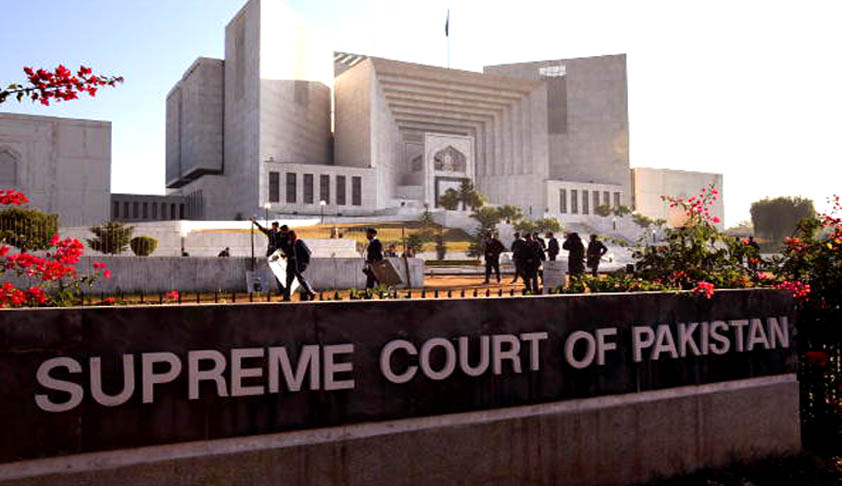Pakistan is on the brink of a significant institutional showdown as the judiciary appears increasingly prepared to challenge the military’s extensive influence. The judiciary’s resistance to the military’s actions involving former Prime Minister Imran Khan underscores the growing tension between these two powerful entities.
The military has been involved in legal actions against Khan, including charges ranging from sedition to illegal marriage. However, the courts have repeatedly intervened, impacting these efforts. Central to this situation is General Asim Munir, whose attempts to support a hybrid regime led by Shehbaz Sharif have faced challenges.
The military is particularly concerned about the Supreme Court potentially addressing allegations of electoral manipulation in the February 2024 elections. Imran Khan has accused the army and its allied parties of rigging the elections, a claim that has gained attention from the United States and other countries invested in Pakistan’s stability.
A Supreme Court ruling on July 12, which granted Khan’s PTI a share of reserved seats in the national and provincial assemblies, has further unsettled the military and the current government. The court’s ongoing efforts to maintain judicial independence have intensified these concerns.
Within the judiciary, opinions vary on how to address the government’s attempts to influence it. A recent meeting of a three-judge committee to discuss the court’s roster revealed differences, particularly regarding the timing of the PMLN’s review petition of the July 12 order. Chief Justice Qazi Faez Isa found himself at odds with the majority, who believed the review could wait until a detailed judgment was issued.
Initially seen as a staunch defender of judicial independence, Chief Justice Isa’s subsequent actions have suggested a shift. His wife’s allegations in December last year that Military Intelligence operatives had threatened her parents may offer some insight into his apparent change in stance. Despite complaints to the Defence and Interior Secretaries, the matter saw little follow-up.
Justice Isa’s reluctance to address serious allegations of judicial interference by intelligence agencies has drawn public criticism. Judges have expressed frustration over his inaction on claims of surveillance and intimidation by the ISI and other military agencies. In one notable case, a lower court judge was abruptly transferred after questioning the military’s expanding business interests.
The judiciary’s discontent with the military’s influence may come to a head once Justice Isa retires in October. Senior judges are expected to take up Imran Khan’s cases against the military, potentially revealing the extent of judicial resentment towards years of perceived coercion and manipulation by the armed forces.
Amidst this institutional clash, Pakistan faces severe economic challenges, exacerbating the public’s difficulties. The price of flour has soared to 800 Pakistani rupees (PKR) per kilogram from 230 PKR, making basic sustenance like roti, now costing 25 PKR each, unaffordable for many. The economic crisis is deepened by the Pakistani rupee’s depreciation and subsidy removals under the IMF bailout agreement, rendering essentials like food, housing, healthcare, and education increasingly out of reach.
Despite these economic hardships, Pakistan’s government has announced a nearly 15 per cent increase in defence spending, allocating Rs 2,122 billion for the 2024-25 budget. This decision, reminiscent of Zulfikar Ali Bhutto’s 1965 declaration that Pakistanis would “eat grass” to boost nuclear capabilities, contrasts with the dire inflation affecting citizens. The defence sector, second only to debt payments, which are projected at Rs 9,700 billion, highlights the nation’s financial strain, with substantial borrowing from nations like China.
Finance Minister Muhammad Aurangzeb, presenting the budget, set ambitious targets, including a 3.6 per cent GDP growth, despite only achieving 2.38 per cent the previous year. The tax collection goal is Rs 12,970 billion, with non-tax revenue targets at Rs 3,587 billion. The government also aims for a historic Rs 1,500 billion Public Sector Development Programme (PSDP) at the federal level, totalling Rs 3,797 billion with provincial contributions.
Aurangzeb’s optimistic assertion that the economic crisis has ended and development is fast-tracked has been met with skepticism. The government’s plans to privatize state-owned entities and outsource airports come amidst increasing public unrest and doubt.
As Pakistan navigates this complex landscape of judicial defiance, military influence, and economic hardship, the stakes for the nation’s future stability and prosperity are high.

